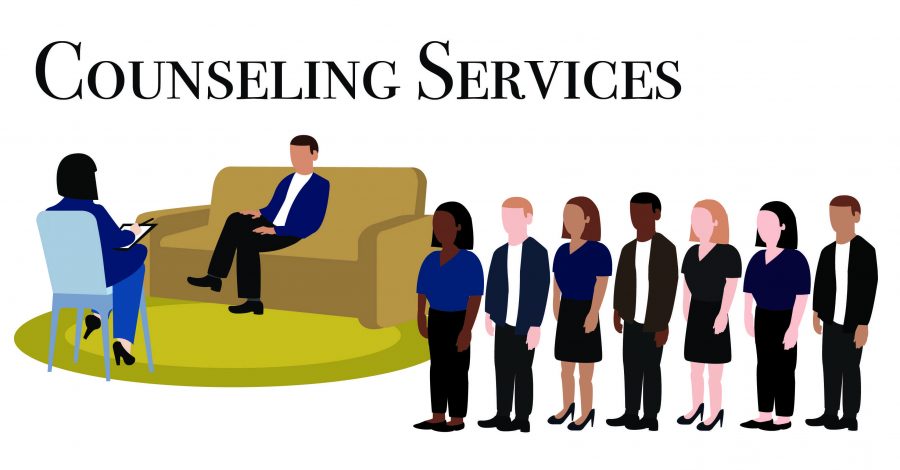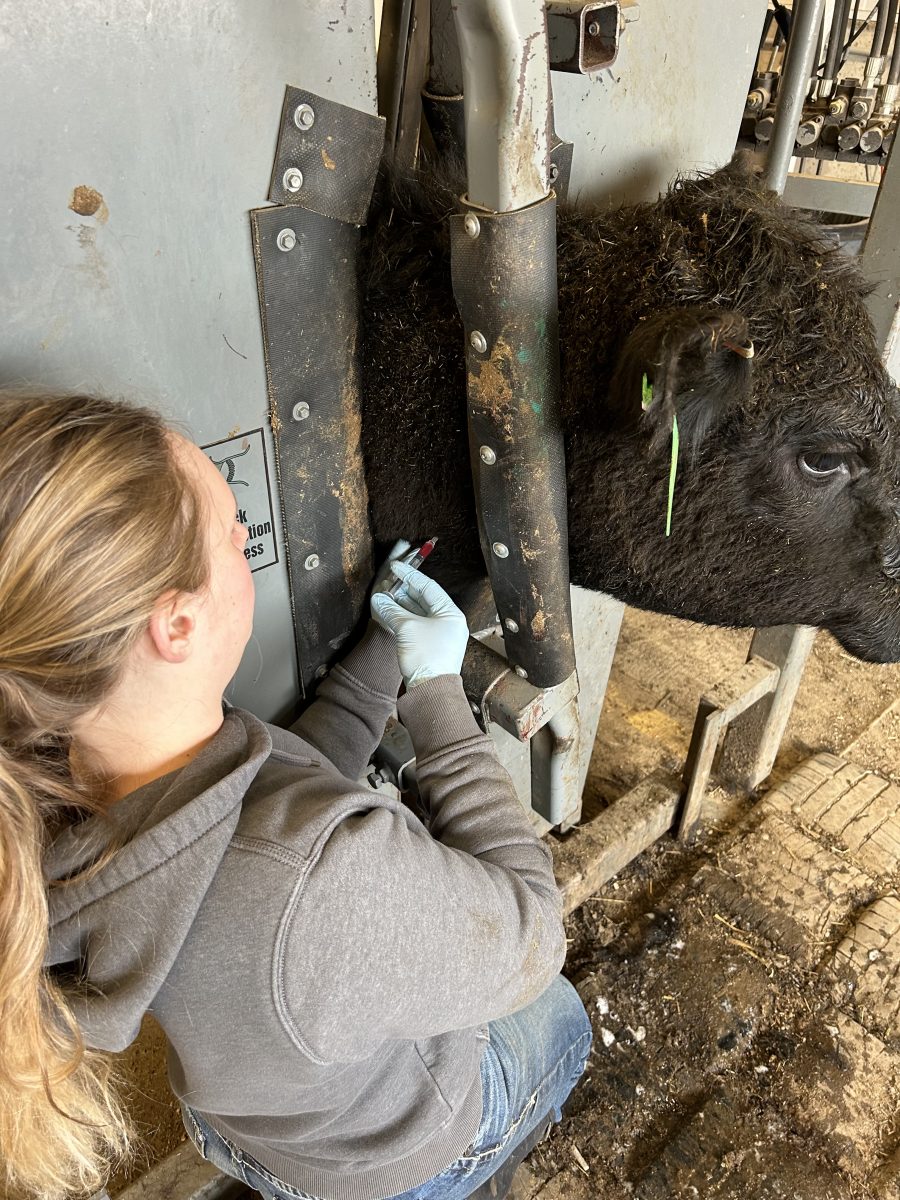With mental health awareness becoming more prevalent on campus the past few semesters, the number of students seeking counseling services have increased, creating a strain on counselors to keep up.
Darci Nichols, assistant director of Wellness Center Counseling, has noticed this pressure on Counseling Services staff.
“Our counselors have been extremely busy over the fall semester and I think that that’s why we’re adding another [counselor],” Nichols said. “The need for mental health support has driven for more counselors and adding staff.”
Polly Davis, a staff counselor at the Wellness Center, said she and her colleagues have felt overworked from an excess number of students continuing to use Counseling Services.
“I think we kind of felt that in the fall because we had a counselor that took another position, so we did feel that strain,” Davis said.
Another counselor will be added to the staff of six at Counseling Services this semester in hopes of resolving wait times for students to meet with counselors.
Last semester, Counseling Services announced an existing, but little-known, administrative measure advising eight counseling sessions per semester per student, according to Associate Vice President for Student Affairs Doug Wermedal.
“This model was set up to accommodate for more students using Counseling Services,” Wermedal said. “But it’s not a meter that runs and then there’s a hard stop at the end. It’s about what’s therapeutically appropriate and providing access to as many possible students.”
The guideline does not bar a student from a counselor in a crisis situation. Counseling Services continues to manage students’ mental health needs on a case-by-case basis. Students may be recommended mental health services outside of the university to continue with treatment or may stay within Counseling Services, depending on their needs.
Some students seeing staff counselors at the Wellness Center have noted an inability to make consistent appointments.
Emily Boyle, a junior psychology major, has been seeing a counselor at the Wellness Center for the past year. In counseling sessions, she said she received guidance on family, relationship and school management issues.
“You can definitely tell that there’s a shortage,” Boyle said. “Last spring semester, I felt like I was able to go whenever I wanted. Now, if I’m lucky, I see her once every three weeks.”
Davis said counselors also feel disappointment in not being able to see students more often.
“I know sometimes with intakes it will be like three weeks out and I know that’s really frustrating for students and it’s frustrating for us,” Davis said. “That’s why we implemented the urgent care days. So if its something urgent at least we can give them kind of a bridge appointment until their intake, but I know there’s been some frustration with that.”
Despite the time constraints, Boyle said the quality of her care was not the issue.
“We’re definitely not lacking quality counselors,” Boyle said. “I just think we don’t have enough of them.”
The International Association of Counseling Services recommends at least one counselor per 1,500 students. Currently, of the 10,600 students with access to Counseling Services, the ratio is one counselor per 1,767 students, approximately. With the addition of a new counselor later this semester, the university aims to meet the international recommendation with approximately one counselor per 1,514 students.
Between the 2015-16 and 2016-17 academic years, the Wellness Center saw a rise of 102 students seeking Counseling Services.
Andrew Poepping, a senior broadcast journalism major, sought a counselor at the Wellness Center in 2016 for depression following the death of a family member.
“I just think they need more staff because I think mental illness is becoming, especially for college students, becoming a big concern,” Poepping said. “We’re starting to think about it more.”
A 2015 study from the New England Journal of Medicine concluded children and adolescents have begun to receive an increased amount of mental health treatment since the late 1990s.
Construction for a $14 million expansion of the Wellness Center began last summer and is set for completion in April this year. Other than an expansion for the waiting and reception areas, this will not include an expansion of Counseling Services.
Davis said she would still encourage any student who feels the need for mental health support, to make an appointment with a counselor at the Wellness Center and to seek emergency services if necessary.
“I know this is a hard thing when you’re going through stressful events, but try to be patient once our staff gets to where they need to be,” Davis said. “[Students should know] that we are trying to do everything that we can and that we really care about our students. We really want to help them.”






















